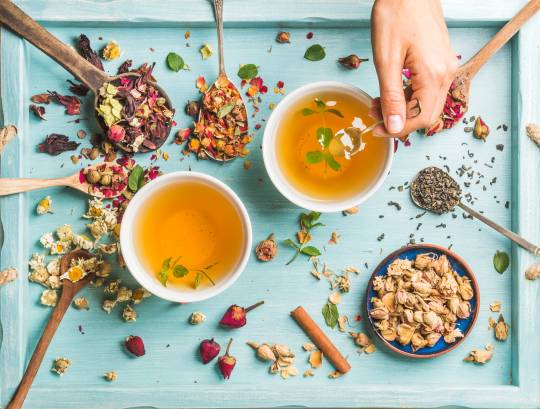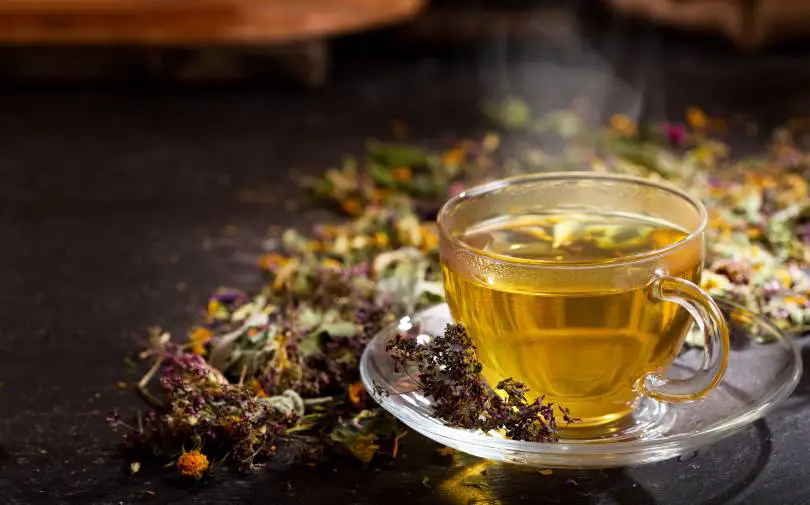Herbal teas are often touted as a healthy drink option, but many people are unaware of the potential consequences of drinking them dehydrated. Dehydration is the loss of fluids in the body.
When the body loses fluids, it becomes dehydrated. The main sources of fluids for the body are water and blood. When the body is dehydrated, it has difficulty performing its normal functions.
This can include having a reduced ability to fight off infection, experiencing fatigue, and having a decreased appetite. In extreme cases, dehydration can lead to death.
What is herbal tea?
Various plant parts, including the leaf, stem, petals, nuts, bases, and fruits, are used to make herbal teas including chamomile, peppermint, and rosehip.
They don’t contain Camellia sinensis plant leaves like other varieties of tea do. As a result, they are officially herbal beverages rather than different kinds of tea. Herbal teas often contain no caffeine and are unlikely to cause your body to become dehydrated.
Although the majority of herbal teas are caffeine-free, some blends do contain caffeine. A classic South American beverage that is becoming more well-known internationally is yerba mate.
It has 85 mg of coffee per cup on average, which is somewhat higher than a drink of tea but fewer than a cup of coffee. It is prepared from the dry twigs and leaves of Ilex paraguariensis.
Although less popular, herbal infusions made from coffee leaves, guayusa, yaupon, or guarana may also contain caffeine. Therefore, consuming a lot of these drinks could affect your body’s water balance, just like it can with other teas that contain caffeine.
Does herbal tea dehydrate you?
Despite the fact that caffeine has a diuretic impact, neither herbal nor caffeine-containing teas are likely to cause dehydration. So, herbal tea drinkers need not be particularly worried about losing fluids.
However, there are some specific herbal tea ingredients that can cause dehydration. For example, tannins in tea can bind to water molecules and lead to a loss of fluids. Similarly, some flavonoids in tea can also bind to water molecules and cause a loss of fluids.
If you are concerned about the potential consequences of dehydration, it is best to speak with a healthcare professional about the best way to manage your hydration levels.
The best hydrator, water, is used to make tea. The comparatively modest levels of caffeine in tea won’t have much of an influence on hydration levels, despite the fact that it does have a mild diuretic effect. In fact, decaffeinated tea is just as hydrating as plain water.

Is herbal tea more hydrating than coffee?
Tea triumphs here over coffee with caffeine! due to the fact that tea inherently contains less caffeine than ordinary coffee. When filling your cup, there are so many different kinds of tea to pick from.
The amount of caffeine in each type varies, as the less moisturizing the tea, the more caffeine there is. The quantity of coffee in your cup will vary depending on how long it steeps.
Therefore, the amount of caffeine in your cup will increase the longer you let your tea steep. The major types of tea you’re likely to discover in your neighborhood coffee shop are listed here, along with an estimate of how hydrating they will be.
Herbal teas are technically brewed from dried leaves, plants, seedlings, or stems of other plants rather than tea leaves. Because of this, they are generally caffeine-free and equal in terms of hydration to a cup of water.
Per 8 oz cup of black tea, there is roughly 47 mg of caffeine. It is therefore less moisturizing than green tea or herbal tea and even decaffeinated teas but has more hydration than caffeinated coffee (96 mg).
Green tea only contains 28 mg of caffeine per 8 oz., green tea naturally has half as much caffeine a cup as black tea. This means that it would have a little higher hydration level than black tea but a slightly lower level than herbal tea.
What are some healthy herbal teas?
Ginger tea
Ginger tea has a robust and spicy flavor that makes it well known as a reliable antiemetic.
The primary bioactive disease-fighting component present in historical ginger root is the antioxidant gingerol. Iron, potassium, vitamin C, vitamin B3 and B6 are among the vitamins and minerals found in trace amounts in ginger.
For persons taking antiplatelet medications like aspirin or clopidogrel (Plavix) or anticoagulant medications, ginger may decrease blood clotting and may be harmful (Xarelto). Additionally, ginger might increase bleeding both during and after operation.
Chamomile tea
Besides being a soothing beverage to sip before bed, chamomile tea has many more benefits. The Asteraceae plant family’s flowers are used to make the herb chamomile.
Since ancient times, people all over the world have used it as a natural cure for a number of health issues. Numerous bioactive phytochemicals, including flavonoids, which serve as antioxidants, are found in chamomile.
Along with other nutrients, it also contains trace amounts of vitamins and minerals like folate, calcium, carotene, and potassium.
Chamomile, however, should be avoided if you have a background of severe allergies, particularly to pollen, as it may be polluted with allergen from other plants.
Hibiscus tea
The hibiscus plant’s vibrantly colored blossoms are used to make hibiscus tea. The stunning blossoms typically come in reddish-orange, pink, and even white hues. The portion of hibiscus known as the “calyx” shields the bloom. Hibiscus tea uses dried calyces, which provide a zingy yet acidic flavor.
Hibiscus tea has antioxidant power and also has trace levels of potassium, calcium, magnesium, and other minerals.
If you use the diuretic drug hydrochlorothiazide, stay away from hibiscus tea since there may be a dangerous interaction between the two. Health experts advise taking aspirin and hibiscus tea three to four hours apart since they may interact.
Where can I buy herbal tea?
There are a variety of places where you can buy herbal tea. Some of the most common places to buy herbal tea include grocery stores, health food stores, and online retailers. It can be found in both loose and packaged forms.
Herbal teas can also be found in various flavors, such as sweet, sour, spicy, and caffeinated. It depends on the tea, but most herbal teas contain between 2 and 3 grams of caffeine per cup.
So, if you are concerned about the potential consequences of dehydration, it is best to avoid herbal tea that contains caffeine.


